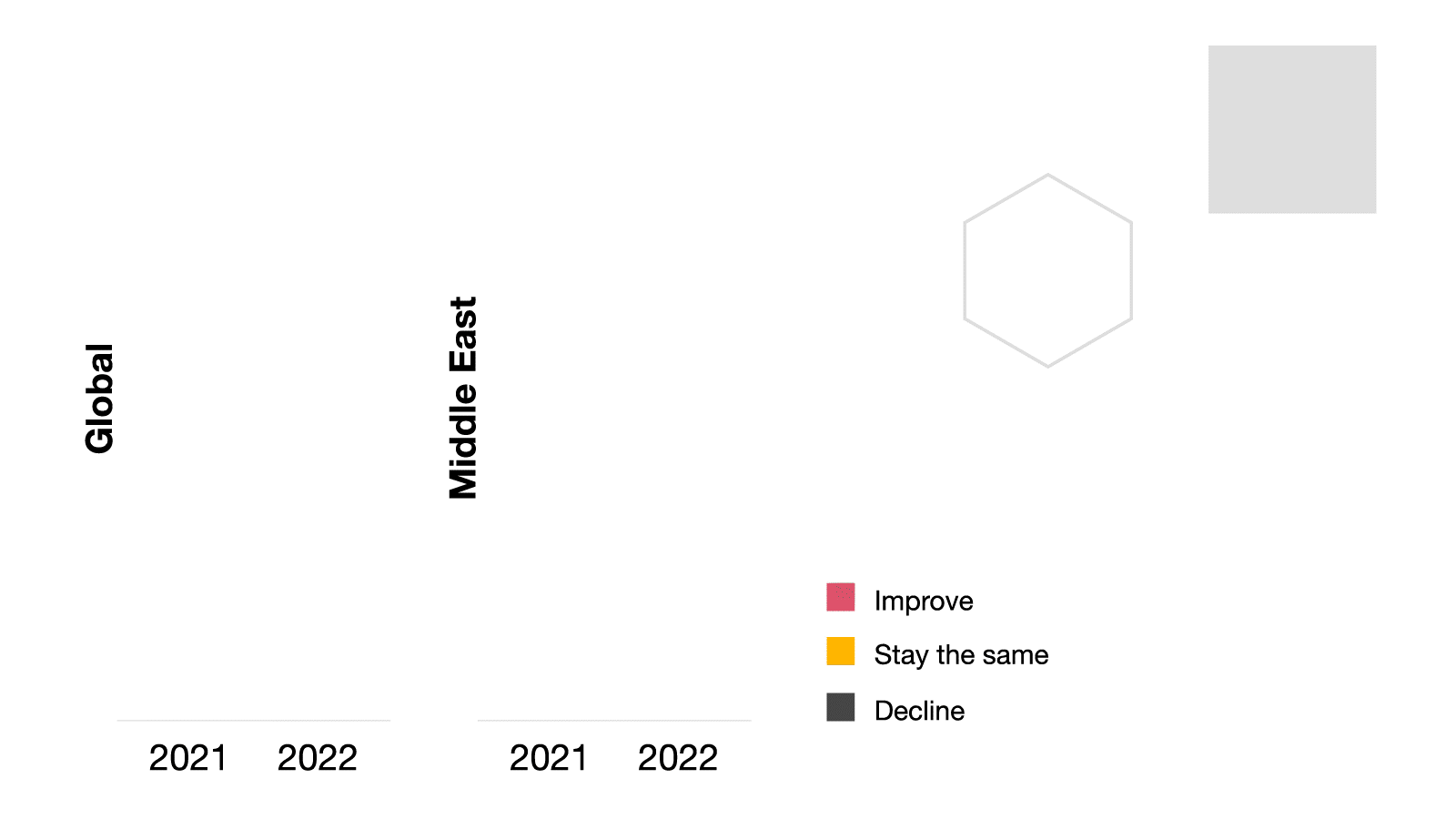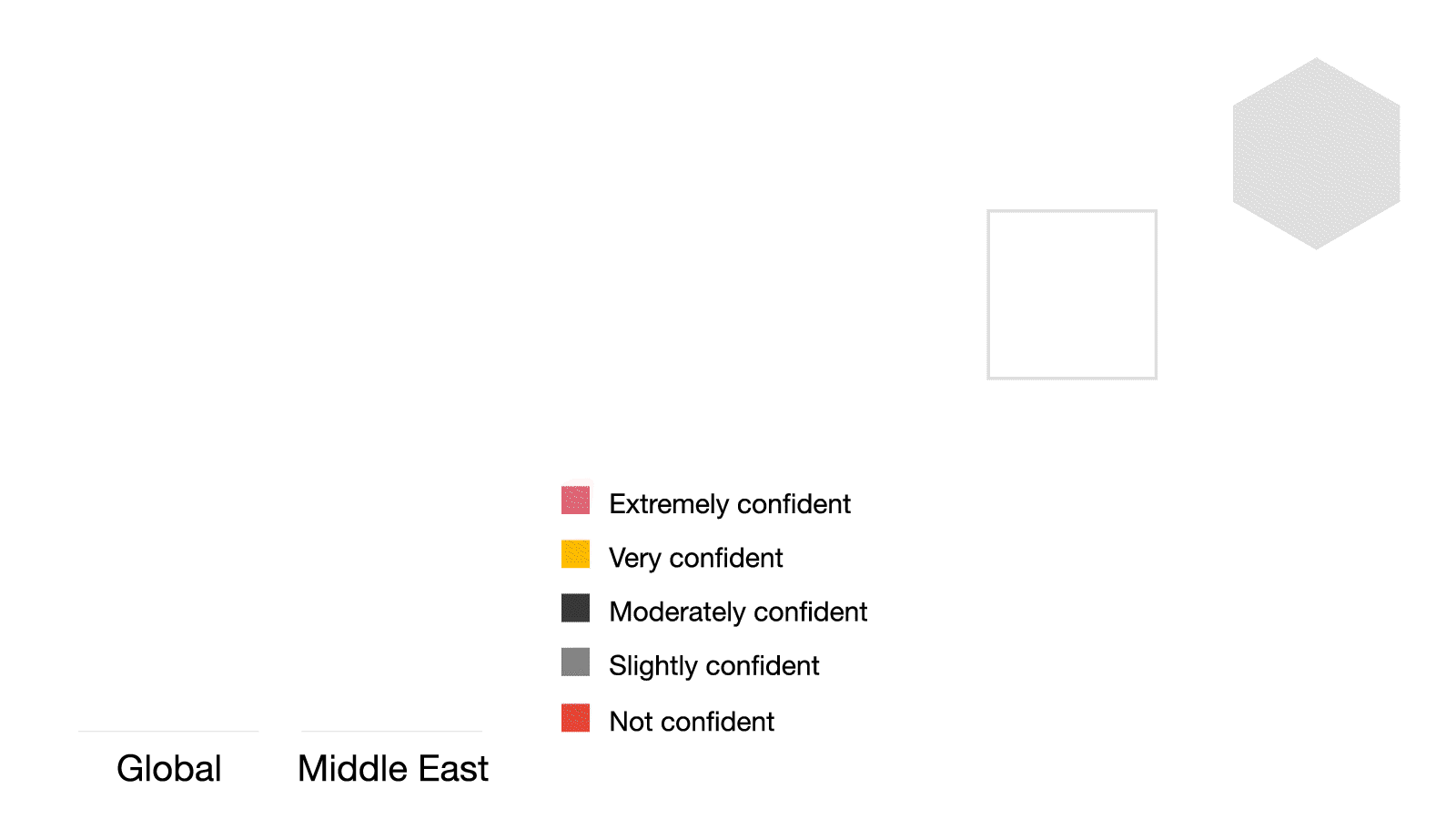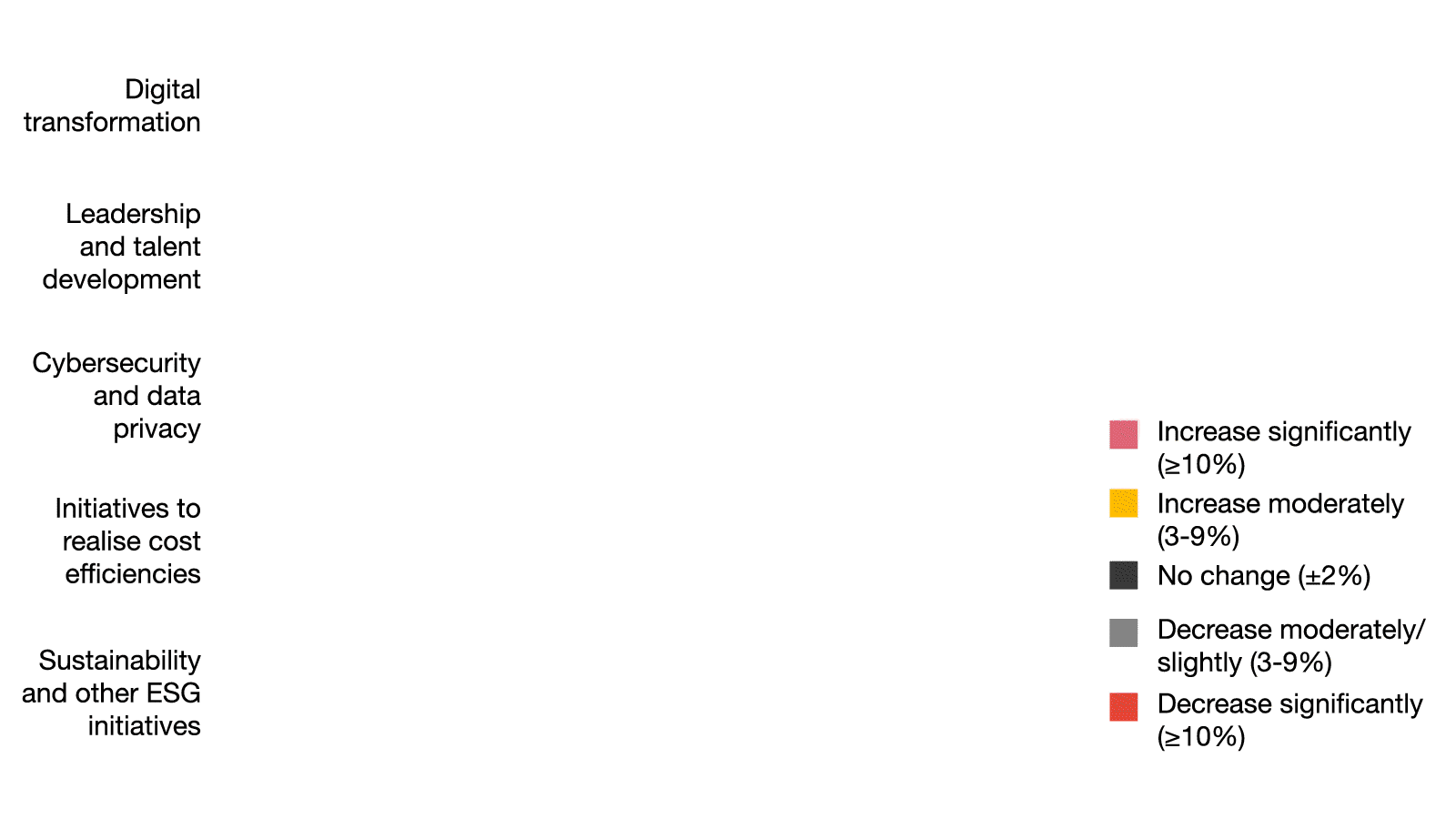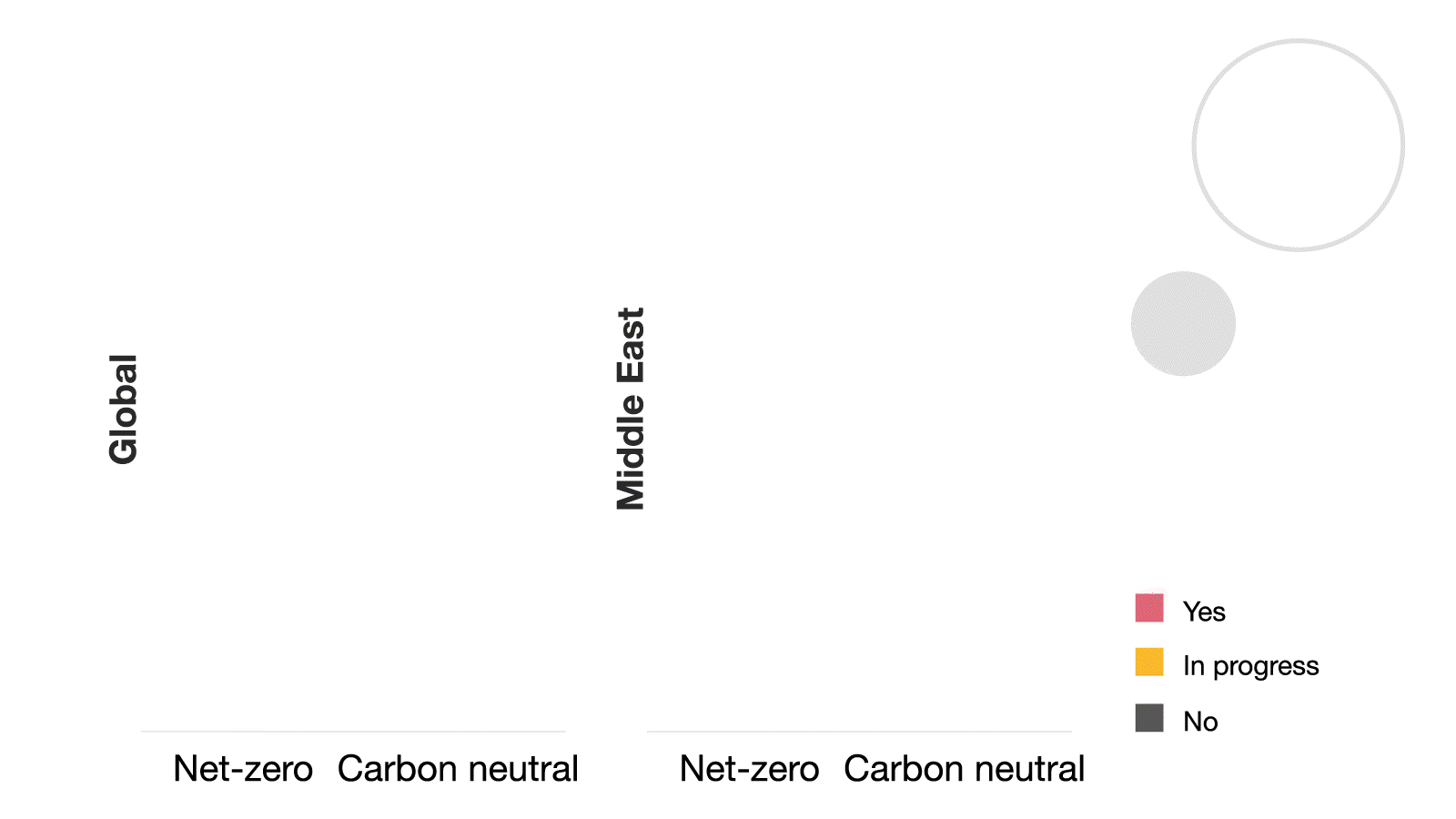
25th CEO Survey: Middle East findings
The direction is clear: forward, not back
Middle East CEOs are optimistic about growth in the year ahead and focusing on ensuring long-term success
Our 25th CEO Survey is published as Middle East CEOs, like their counterparts worldwide, face the on-going challenge of the shutdown era. Shortly after we completed the fieldwork on this survey, the global spread of the Omicron variant provided a sobering reminder that the crisis has not yet run its course.
Yet I am pleased to see that regional business leaders share my confidence that renewed growth lies ahead. CEOs who have built trust with their customers, people and wider stakeholders through the crisis are in a very strong position. These business leaders are now looking beyond the shutdown era with a focus on delivering sustained outcomes.
Recognising that our region is transforming at speed, CEOs are channelling their energy towards a growth agenda, new business models, customer experiences and organisational efficiencies facilitated by cloud computing and digital tools. Meanwhile, they are upskilling their workforces and developing tomorrow’s leaders.
At PwC, we believe that building trust between businesses and customers is critical to success in these rapidly evolving markets. Trust is also central to collective efforts to slow climate change. The regional CEO Survey results confirm that so far, many Middle East companies are still identifying what commitments they should make to help reduce carbon emissions. In fairness this is a worldwide problem, illustrating the difficulty of translating corporate mission statements about tackling climate change into measurable KPIs.
Over the next year, I look forward to working with CEOs to meet this challenge, as they also seek to capture fresh opportunities across the region. I would like to thank all our respondents for taking part in the survey.
Hani Ashkar
Middle East Senior Partner
PwC Middle East
Optimism tempered by an awareness of familiar and emerging threats and risks: such is the prevailing mood of Middle East business leaders as our 25th Global CEO Survey is published. To a large extent, the regional findings are in line with the overall survey results, as the region and the world returns to growth in the wake of the shutdown era. On the one hand, opportunities abound for companies that have navigated a path through the public health event and are geared up for a future where new technologies and digitally skilled employees will increasingly drive their growth. Over the next three years, 52% of Middle East respondents plan to increase investments in digital transformation by 10% or more, while 46% expect to increase investments in leadership and talent development by the same margin. Yet Middle East CEOs also see an array of risks in this rapidly evolving landscape – notably from the same disruptive digital technologies. More than half (57%) of Middle East CEOs identify cyber risks as a major defensive priority for the next year, significantly more than the global survey average (49%), while 65% of those regional respondents anticipate that cyber threats will inhibit their company’s ability to innovate in 2022. At first glance, it might seem surprising that Middle East CEOs appear largely disengaged from national, regional and international efforts to slow global warming. For example, only 5% report that their companies have made net-zero commitments, and only 14% have greenhouse gas (GHG) emissions targets in their long-term corporate strategies. Yet while these results are below the global average, it is also true that only a minority of respondents worldwide score favourably in these areas. We believe this inertia regarding climate change is unsustainable, given the undertakings made by Middle East governments at last November’s COP26 conference in Glasgow, and national transformation programmes to reduce oil and gas dependency. Given the public health event, it is less remarkable that more than two-thirds of Middle East respondents (69% and 67% respectively) regard health risks as a threat to both sales and recruitment over the next 12 months. Their concerns were justified two weeks after our fieldwork closed, when the eruption of the Omicron variant cast fresh doubt on the public health event’s ultimate duration and an eventual return to normality. We believe building trust will be critical to business success and delivering sustained outcomes in the coming years – not just in terms of traditional customer relations, but as the common theme which connects a range of challenges, from investing in digital skills and technologies to responding to a new generation of young, socially aware consumers. Our Middle East findings show that many business leaders have already begun to grasp the importance of trust in all its dimensions.
Key findings from the Middle East:
Short-term optimism:
% of Middle East CEOs believe global economic growth will improve over the next 12 months
Read more
Investments are key to sustainable growth:
% of Middle East CEOs plan double-digit investments in digital transformation over the next three years, maintaining pre-crisis event momentum; % expect to increase investments in leadership and talent development Read more
Strong short-term optimism among CEOs
A year ago, as the first pulse one wave subsided, Middle East CEOs felt able to look ahead with cautious confidence. Over the course of 2021, their positive short-term outlook has strengthened, with 82% of regional business leaders believing that global economic growth will improve over the next 12 months, slightly higher than the global average, compared with 72% in our previous Middle East survey. Furthermore, as a result of the strong vaccine rollout, Expo 2020 in the UAE and the upcoming World Cup in Qatar, 64% are either extremely or very confident about their company’s revenue growth prospects in 2022, markedly higher than the global survey average of 56%.
How do you believe global economic growth (i.e., gross domestic product) will change, if at all, over the next 12 months?

How confident are you about your company’s prospects for revenue growth over the next 12 months?

The survey was conducted before the Omicron global health crisis variant cast a shadow over the world’s recovery from the global outbreak. Nonetheless, Middle East respondents, like their global counterparts, clearly see 2022 as a year for further expansion amid emerging opportunities.
Within the region, Egypt (29%) and Saudi Arabia (27%) continue to be the top growth markets for Middle East CEOs outside their home territories. The US (21%) and China (14%) continue to be the highest-ranked growth markets outside the region.
Which three countries/territories, excluding the country/territory in which you are based, do you consider most important for your company’s prospects for revenue growth over the next 12 months?
Cyber risks are on the rise amid digital transformation
Last year’s regional findings highlighted how the global health crisis had amplified boardroom concerns about cybersecurity, as employees shifted to remote working and companies leveraged new technologies to maintain disrupted operations and expand online sales channels. Cyber threats remain top of Middle East CEOs’ risk agendas, amid accelerating regional transformation underpinned by massive digital infrastructure investments.
How concerned are you about the following global threats negatively impacting your company over the next 12 months? (Showing only ‘very’ and ‘extremely concerned’ responses)
More than half (57%) of Middle East respondents say that cyber risks will have a negative impact on their company in the next 12 months, higher than the global average of 49%. Regional companies appear to be more targeted than companies in other geographies due to their strong link with local governments and increasing regional geopolitical tensions. As a result, 65% of Middle East business leaders believe cyber risks will limit their organisation’s ability to innovate over the next 12 months and 59% say these threats will undermine sales of products and services.
It is hardly surprising, therefore, that 39% of Middle East CEOs, the same proportion as in 2021, plan double digit investments in cybersecurity and data privacy over the next three years.
Other findings also underscore that the short-term optimism of Middle East CEOs is coloured by acute awareness of potential dangers further ahead. For example, 50% of Middle East CEOs cite macroeconomic volatility as a major risk, slightly more than the global average of 43%, in a regional setting of continuing concerns about geopolitical conflict and sudden energy price movements.
At the same time, 48% of regional respondents are worried about health risks, in line with the rest of the survey, following a year when the public health event has still not been contained by vaccinations. Indeed, more than two-thirds of Middle East CEOs regard health risks as a threat to sales (69%) and recruitment (67%) in the next year and these responses were gathered before the global spread of the Omicron variant.
By contrast, only 36% of regional respondents see climate change as a significant risk, reflecting the global survey average. As noted, we believe this attitude is short-sighted, both in the context of the global COP26 agenda and ambitious carbon emissions reduction targets in national transformation programmes.
Investing in new technologies, leadership skills and people development is the key to sustainable growth
Like their global peers, Middle East CEOs are reviewing their priorities for the next three years, in a region where rapid, technology-driven transformation is disrupting the entire market landscape.
Some of these priorities remain the same as before the public health event and have even been reinforced by the impact of the global health crisis. This is particularly true of the drive to digitalise business operations, from supply chains to sales channels, as governments across the Middle East carry on with ambitious modernisation agendas. In total, 52% of Middle East CEOs plan double digit investments in digital transformation over the next three years, compared with 59% of regional respondents in our previous survey.
How do you plan to change your long-term investments in the following areas over the next three years?

Other priorities reflect the shift in boardroom focus from the global health crisis management to building long-term competitiveness in a region that is increasingly integrated with the global economy.
This year’s survey indicates that a growing proportion of Middle East business leaders have grasped that success in the digital age requires skilled people as well as the latest technologies ‒ 46% of regional respondents plan double-digit investments in leadership and talent development over the next three years, compared with 30% last year.
These priorities were also echoed by our 2021 Future of Work and Skills Survey, where Middle East respondents confirmed that lack of senior leadership capability, cost pressures and the organisation’s culture are the biggest hurdles limiting the ability to identify skills needed in the future due to technological change.
Climate change and equality ‒ not there yet
Many regional business leaders still seem uncertain when considering the potential impact of climate change and gender and equality issues on their organisations.
Only 14% of Middle East CEOs say greenhouse gas (GHG) emission targets feature in their long-term corporate strategies, far less than the global survey average of 37%, after a year when the COP26 conference and climate-related weather events repeatedly made headlines.
Middle East business leaders also trail their international peers in setting net-zero commitments, with just 5% willing to go this far, compared with 22% globally (itself still a low proportion).
Has your company made a net-zero commitment or carbon neutral commitment?

Meanwhile, only 29% of Middle East CEOs say gender representation rates are included in their long-term corporate strategies, well below the global average, and only 14% include race and ethnicity representation rates.
The overwhelming majority of Middle East CEOs have no personal financial motive to pursue climate change and equality goals. Only 5% (compared with 13% globally) have GHG reduction targets and only 4% (compared with 11%) have gender representation rates included in their bonus or incentive plans.
Are the following non-financial related outcomes included in your:
a) company’s long-term corporate strategy? b) personal annual bonus or long-term incentive plan?
We expect these proportions to rise over the coming decade, given the commitment by governments across the region to ambitious COP26 carbon reduction goals and to building modern societies.
What is also clear is that delaying action is no longer an option. No single measure will bridge the gap on its own, so we recommend the following actions to begin the process of making companies fit for a fast-approaching future where demonstrable commitment to CO2 reduction and equality will be critical to business success:
Building trust and delivering sustained outcomes – a new equation for leadership
Our Middle East findings show that the region’s CEOs confront the same complex challenges and opportunities as their global peers. As their organisations emerge from the public health event, CEOs are under increased pressure to deliver sustained outcomes amid accelerating regional transformation.
To this end, they are taking steps to build trust with customers, employees and wider society as they seek to capture new growth opportunities, implement digital transformation programmes and nurture talent, while developing achievable carbon reduction targets.
In the coming years, success will increasingly depend on a company’s ability to take customers on a journey into uncharted territory, where digital technologies and young, digitally savvy and socially aware consumers will transform markets. As this year’s survey illustrates, the voyage is only just beginning for many Middle East businesses, but the direction of travel is already clear – forwards, not back to a pre-crisis normality.
About the survey
PwC surveyed 4,446 CEOs in 89 countries and territories in October and November of 2021. The global and regional figures in this report are weighted proportionally to country or regional nominal GDP to ensure that CEOs’ views are representative across all major regions. Further details by region and country are available on request.
Not all figures in charts will add up to 100% as a result of rounding percentages and the decision in certain cases to exclude the display of ‘neither/nor’, ‘other’, ‘none of the above’ and ‘don’t know’ responses.
Contact us









